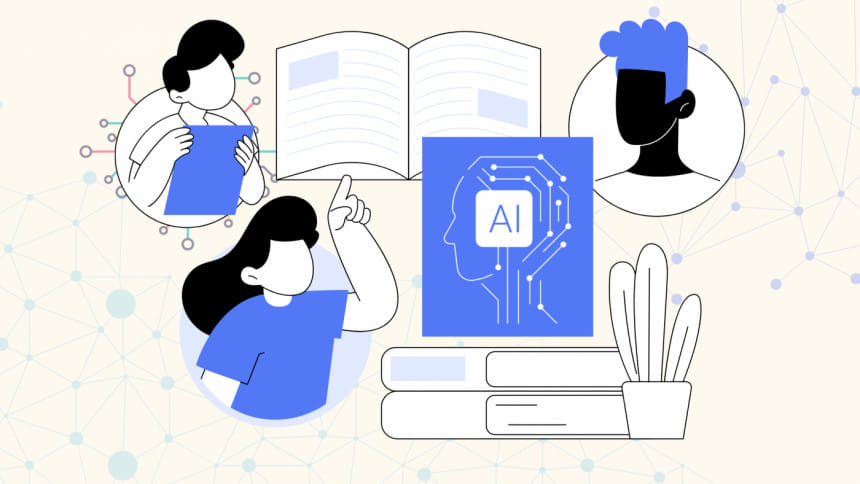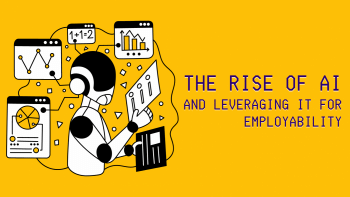Understanding educational psychology: Harnessing AI for holistic learning

As we mark the International Day of Education 2025, it is clearer than ever that along with the traditional methods of teaching, integration of artificial intelligence (AI) in Bangladesh's education system can bring about great improvements. AI has been growing rapidly, and it has the power to create a revolution in the education sector. The use of AI-driven education can play a pivotal role in bridging the gap where quality education is still inaccessible to people.
Through the implementation of AI, access to quality educational resources can be ensured, irrespective of the students' geographical location or socio-economic background. AI-driven platforms can assist rural educators by showing them new ways of teaching and best practices from around the world. If implemented in an innovative way, AI can empower the educators rather than replace them. Here the word "innovative' means adopting technological amenities in relation to the needs of the learners. To do this successfully, educators need to understand educational psychology.
Each student learns and develops differently. Educational psychology strives to understand behaviour, cognition and emotional needs to determine how education can be delivered in the best possible way. AI has powerful tools to advance educational psychology by determining students' specific needs, assessing behavioural patterns, and designing suitable interventions to achieve development. For instance, students who have disabilities like dyslexia or ADHD can learn much better with the AI tools that cover their specific needs.
AI-based adaptive learning systems have the power to redefine classroom learning to suit different sets of needs among learners by using different lesson plans, teaching styles, and even modes of assessment. Virtual tutors can also aid teachers, particularly in understaffed regions. Since AI can analyse data in real-time, it is possible to monitor engagement learning outcomes and detect patterns in students' behaviour.
Moreover, by tailoring training modules to teachers' current skills and knowledge, these platforms help educators improve their teaching methods and stay updated with educational developments. These personalised academic resources can ensure that no learner is left behind. AI applications such as interactive games and quizzes encourage inclusion as they are more supportive of students with disabilities.
However, when we look at the other side of the coin, we have to realise that AI is bound to raise issues related to over-dependence, privacy and mental well-being. Over-dependence can result in a lack of creativity and critical thinking skills, both of which are an essential part of being a human. Additionally, unnecessary use of the computer can have negative implications for the mental and physical health of students. It also makes them stray away from forming human connections.
In my position as an educator, I subscribe to the idea of AI's balanced application. AI should be embraced in schools as an enhancement tool rather than a replacement for human interaction. Teachers should continue to be at the core, building rapport with students.
To utilise AI in a way where students can benefit from it, schools need to take some measures to ensure student well-being is still their priority. To do so, institutions need to establish clear policies on the ethical use of AI, prioritise data privacy and limit screen time. At an educational level, particular sets of skills where AI usage is effective should also be fostered, always with the human-centred approach. Schools need to combine AI with other activities aimed towards fostering creativity, critical thinking, and social skill building. By making sure these tools are available to everyone no matter what part of the country they belong to, we can make sure it doesn't broaden the educational gap and learning losses.
On this International Day of Education, let's pledge together to utilise AI in a responsible, inclusive way, which has the potential to change the way students learn in the classroom.
The author is the Principal of Glenrich International School, Uttara


 For all latest news, follow The Daily Star's Google News channel.
For all latest news, follow The Daily Star's Google News channel. 










Comments